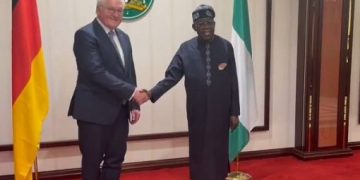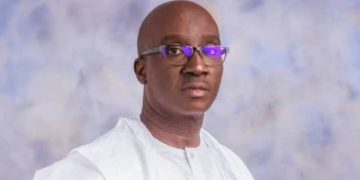The Federal Capital Territory Minister and the 28 state governors who are leaving down on May 29 or running for reelection have accumulated nearly N5.8 trillion in sub-national debt during the present economic crisis.
The sub-national debt reports were examined by the Debt Management Office, which provided the debt figures. In March, 11 governors from the 28 states will seek reelection.
There are several other governors in addition to Abdullahi Sule of Nasarawa, including Babagana Zulum of Borno, Seyi Makinde of Oyo, Mai Buni of Yobe, Bello Matawalle of Zamfara, Babajide Sanwo-Olu of Lagos, Ahmadu Fintiri of Adamawa, Dapo Abiodun of Ogun, Bala Mohammed of Bauchi, and Abdulrahman Abdulrazak of Kwara state.
The following representatives from their respective states—Emannuel Udom of Akwa Ibom, Samuel Ortom of Benue, Ifeanyi Okowa of Delta, David Umahi of Ebonyi, Mohammed Abubakar of Gome, Aminu Masari of Katsina, Bello Bagudu of Kebbi, Abubakar Bello of Niger, Aminu Tambuwal of Sokoto, Simon Lalong of Plateau, and Da
Among the other governors who are not seeking reelection are Nasiru El-rufai of Kaduna State, Abdulahi Ganduje of Kano, Victor Ikpeazu of Abia, Ifeanyi Ugwuanyi of Enugu, Ben Ayade of the Cross Rivers, and Nyesome Wike of the Rivers.
Internal borrowing from regional lenders and external borrowing from foreign or international lenders like the World Bank make up the sub-national debts.
The DMO’s website released the domestic and external debts as of September 30 and June 30, 2022, respectively.
Using the Central Bank of Nigeria’s exchange rate of N449.53 to a dollar as a basis, sub-national debts as of Thursday were estimated to be N4.38 trillion in domestic debt and nearly $3.15 billion in overseas debt.
Lagos has the greatest debt, according to the report, with N877.04 billion in domestic debt and $1.27 billion in international debt. Kaduna is next, with a $586.78 million external debt and a domestic debt of N86.86 billion.
Rivers has the third-highest debt, with N225.51 billion in domestic debt and $140.18 million in international debt. Cross Rivers is the fourth-highest debtor ranking with N175.2 billion in domestic debt and $215.75 million in foreign debt.
Ogun follows with N241.78 billion in domestic debt and $122.73 million in international debt.
Others include Bauchi (N144.28bn domestic debt and $172.76m external debt); Enugu (N89.89bn and $123.02m); Kano (N125.19bn and $109.42m); Abia (N104.57bn and $95.63m) and Adamawa (N122.48bn and $77.01m).
Other debtor states are Akwa Ibom (N219.62bn and $46.567m), Benue (N143.37bn and $30.47m), Borno (N96.33bn and $18.7m), Delta (N272.61bn and $60.05m), Ebonyi (N67.06bn and $59.84m), Gombe (N139.1bn and $46.93m), Jigawa (N44.41bn and $27.61m), Katsina (N62.37bn and $55.82m), Kebbi (N60.13bn and $42.40m), Kwara (N109.55bn and $45.94m), and Nasarawa (N72.63bn and $53.73m).
Niger (N98.26bn and $69.27m), Oyo (N160.07bn and $76.97m), Plateau (N151.90bn and $33.74m), Sokoto (N85.58bn and $37.13m), Taraba (N90.81bn and $22.28m), Yobe (N92.86bn and $23.09m), and Zamfara (N109.69bn and $29.33m) are also included
The FCT owes $25.38 million in international debt as well as N112,49 billion in internal debt.
These states and the FCT were responsible for up to 69.08 percent of the $4.56 billion in external debts and up to 81.72 percent of the N5.36 trillion in subnational internal debts.
According to Dele Afolabi, Director of the DMO’s Portfolio Management Department, each state is required to submit quarterly data on its domestic debt.
He went on to say that if states were honest about their debt profiles, they would be able to get more aid.
















